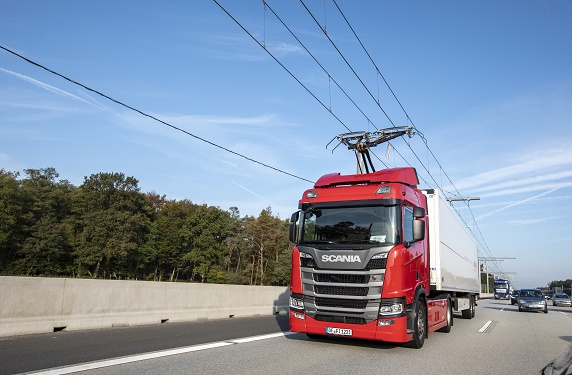
UK’s first ‘electric motorway’
The Department for Transport has awarded funding through Innovate UK to a consortium to lead the UK’s first ever study on the electrification of long-range trucks with dynamic charging, using overhead wires on motorways.
The study is part of the £20m put aside for zero emission road freight trials under the recently announced Transport Decarbonisation Plan (TDP) and was awarded based on the Costain led consortium expertise in sustainable transport. It includes Siemens Mobility, Scania, The Centre for Sustainable Road Freight (Cambridge University and Heriot-Watt University), ARUP, Milne Research, SPL Powerlines, CI Planning, BOX ENERGI and Possible.
Costain’s managing director transportation, Sue Kershaw, said: “This study is another important step towards understanding how industry could work together to tackle one of the largest carbon emission producers in the country and create a cleaner, greener and more efficient road freight network across the UK. Bringing our heritage in complex programme delivery and expertise in integrating technology to this consortium is part of our Climate Change Action Plan to implement change and create a green transport future through collaboration.”
The consortium has proposed an ‘electric road system’, using the Siemens Mobility ‘eHighway’ technology, as the fastest, lowest carbon and most cost-effective route to decarbonising our road freight industry and delivering cleaner air. The nine-month study kicks off this month and is hoped to be the forerunner of a scheme that aims to see the UK’s major roads served by overhead lines by the 2030s.
These eHighways allow specially adapted trucks to attach to the overhead wires and run using the electricity, like rail and trolley-bus systems. The trucks come equipped with a battery that charges while they are in motion so they can detach to both overtake vehicles and reach their destination with zero emissions from start to finish.
Research by the consortium has even found that initial investments into new vehicles by operators could be recouped within 18 months, due to lower energy costs, and the electrification infrastructure would pay back investors in 15 years.
Information Source: Read More…..


